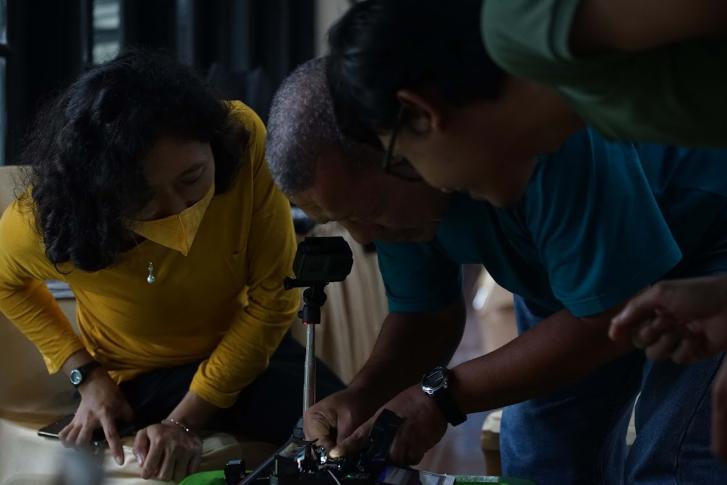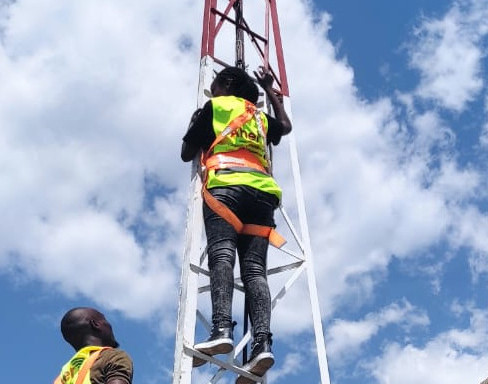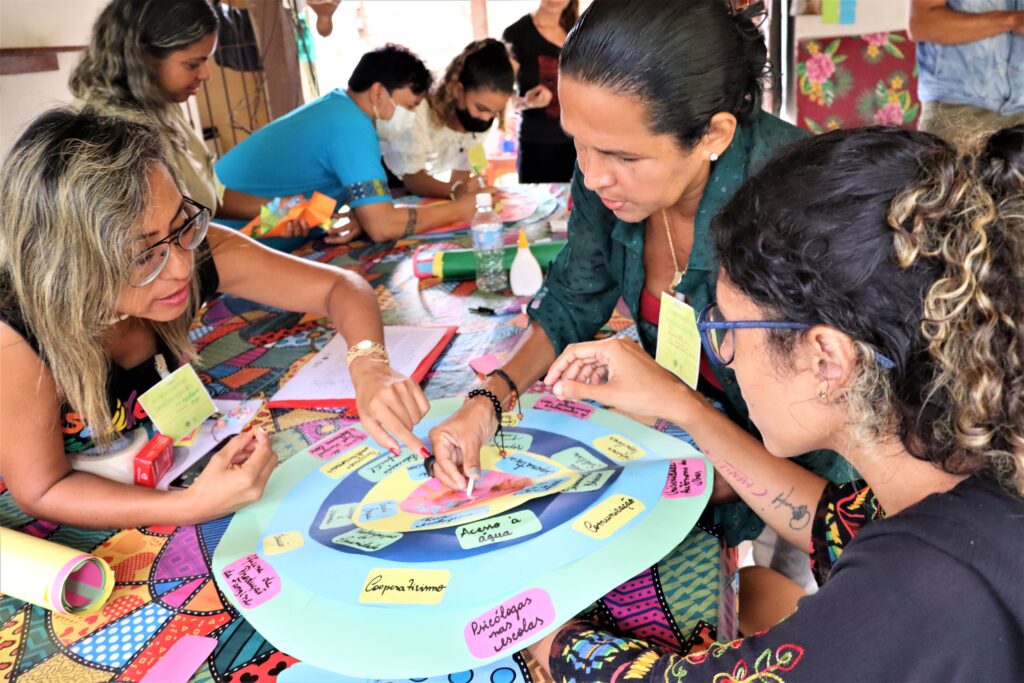
How are grassroots communities promoting digital inclusion while strengthening their autonomy? By sharing knowledge and thinking together how to build and strengthen community networks. Around 35 communities are joining the national community networks schools, the first of their kind, taking place in five countries: Brazil, Indonesia, Kenya, Nigeria and South Africa.
The National Schools are a collective capacity-building and strengthening effort for the creation, development and consolidation of community networks as a way to cultivate bottom-up, sustainable approaches to communication and meaningful connectivity.
Between December 2021 until January 2023, each school will build its own timeline and programme with a participatory approach, shaping the processes according to local needs and interests. They can include mentoring as well as face-to-face and online activities on different topics related to community networks. They may cover topics such as services and infrastructure, sustainability, policy and regulation, communication and self-determination, among others.
In addition to being a learning powerhouse, each school seeks to be a multiplier of community-led initiatives, bringing together people from different communities around the country and fostering collaboration with other organisations acting towards a locally-led approach to digital inclusion. On average, each school involves 21 representatives from seven local communities interested in strengthening or growing a community network in their region. It also involves a “meso” organisation, which is the one facilitating the school process and considered well positioned to provide support for those building the initiatives on the ground.
As part of the project “Supporting Community-led Approaches to Addressing the Digital Divide” led by APC and Rhizomatica, numerous organisations (like REDES A.C.) and community-network builders are also supporting the schools’ processes.
Meet the schools
In Nigeria, members from rural communities discussed alternatives to bridge access gaps during the first Nigerian School of Community Networks, promoted by the Centre for Information Technology and Development (CITAD) in December last year.
In Asia, an educational programme is sowing community network seeds across Indonesia, where participants from eight provinces were recently involved in a "training of trainers". In a six-day training promoted by Common Room from 11 to 16 January, as part of the School of Community Networks Indonesia, participants took a deep dive into the development and use of community-based internet infrastructure, discussed rural internet governance, technical aspects and concrete innovation cases.
In South Africa, seven communities from different digitally marginalised areas are part of the first ever School of Community Networks ongoing across the country, designed by Zenzeleni Networks NPC in collaboration with others. The 10-month skills development programme began with a face-to-face meeting held from 31 January to 12 February 2022, when urban and rural community members gathered to reflect on community-led connectivity alternatives to bridge the digital divide in the areas where they live. (Find out more in the video below.)

Meanwhile in Kenya, community members and local organisations joined the Kenya School of Community Networks promoted by TunapandaNet Community Network. From 28 February to 4 March, the first encounter brought a reflection about network infrastructure and services, policy and regulations issues and ways to achieve sustainability.
As those four schools are ongoing, in Latin America the Amazon Community Networks School is in the preparation stage. In the Brazilian Amazon region, the Saúde e Alegria Project lead visits to seven Indigenous and traditional communities that will be part of the national school taking place between June and December this year.

A community of networks
While each initiative reflects different realities and brings together multiple voices, they all have one thing in common: the community-centred approach is allowing participants to adapt the shared knowledge to their own realities, incorporating local strengths and challenges when building community networks. By early 2023, the hope is that not only more community networks will emerge and grow in those five countries, but also that participants will have gone through a journey of mutual empowerment through exchanging knowledge, supporting each other and acting together on national levels.
The schools’ experience is also showing that a bottom-up approach to digital inclusion is not only possible, but also necessary, as they are bringing together precisely the communities living in rural, traditional, forest and urban areas impacted by a history of inequalities and left behind by governments and telecommunications operators. This is a meaningful and concrete step towards supporting grassroots communities to close the digital divide.
The initiative “Supporting Community-led Approaches to Addressing the Digital Divide” is a project implemented by APC in partnership with Rhizomatica that aims to develop the models, capacities and sustainability of community networks, with financial support from the UK Government’s Digital Access Programme.
* Photos (respectively): Common Room (Indonesia), KICTANet (Kenya) and Saúde e Alegria Project (Brazil).
Leia esse conteúdo em português / Lee este contenido en español